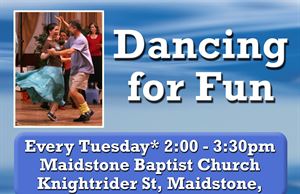What are kids thinking? Channel 4's Secret Life Of 4 And 5 Year Olds
As any parent whose child has just started school for the first time will attest, finding out what little one's been up to all day is like getting blood out of a stone. Often the response is a shrug, or a simple (and frustrating), "Nothing".
But there's a very good reason they're so noncommittal says Shona Goodall, a clinical psychologist who's also one of the new faces on Channel 4's the Secret Life Of 4 And 5 Year Olds.
"They're really, really tired and they don't always show it or tell you. And, generally at four, they can't hold in mind anything they've done through the day, so as a parent, don't be put off."
Instead of asking direct questions, suggests Shona, it's better to engage them with a prompt or an observation: "If they're smiling, you might say, 'You look like you've had a good day', and then leave it and see what they say, or you might say, 'You're looking a bit tired, shall we get you a snack?' More of a commentary to try and engage them is what I find tends to help with a tired child."
The documentary series, which has been a hit with parents since it started in 2015, is back in November with a cast of cuties including a girl with Down's Syndrome and a girl who's battled cancer, as well as more fascinating insights into why our children behave in the way they do.
Here Shona answers some of those pressing questions about what's really going on in their heads...
Why are the ages of four and five such a crucial time in terms of development?
"It's a key developmental stage in terms of executive functioning, that starts to kick in around four and five and school definitely promotes them to practise. There's a certain point when you don't have theory of mind (the knowledge that other people think differently from you), your working memory is quite short, your processing speed is slower, in terms of what you can take in and hold at once.
"And it's different, some at four are starting to get it, some at four are nowhere near, but by the time they're six, you'll be able to tell who has got good executive functioning and is able to apply it, and who hasn't."
How can parents best support their child's learning at this age?
"It's about encouragement and how you word it. Research has shown it's important to catch children in the act of doing something. Rather than saying, 'That was great', and it was 10 minutes or an hour ago, you want to catch them very much in the act. As they get older, you can praise them afterwards a lot more easily and they will hold that information in their mind.
"So, if they're sitting and being really quiet, you might want to put your hand on their shoulder, catch their attention and give them a little stroke and say, 'Aw, you're sitting really well' - there's something about the '-ing' action that encourages someone to keep doing something. Children really respond to being noticed in the moment."
When do children start learning to share with others?
"Sharing comes along with theory of mind, which is that ability to know that you have an idea that's different from somebody else's. There's an age at which children will just share because they've been told to, but they might not necessarily understand why. And there's an age at which theory of mind comes on board and they start to understand what the meaning of sharing is and then, around seven and eight, they start to understand the equality and morals of sharing. So, it happens in layers across time, and the depth of understanding around what sharing means changes over time.
"Children start to realise when somebody didn't share with me, I didn't like it, so I will share with them because they're my friend. And that varies from around age four to around six. So, some of our four-year-olds can be quite advanced and some of our four-year-olds can be quite delayed, but there's nothing to worry about because they'll all get there eventually."
Why does my child appear to behave differently when I'm not around?
"We all behave differently in different settings as grown-ups, so I would behave differently at work than I would on a night out. We learn from a really young age about what is appropriate, what can we push and what isn't appropriate. Some people we can really be ourselves with and show our whole range of emotions to, and in other situations, we really can't and probably shouldn't.
"Even children as young as four and five know that in front of their teachers, or other children, they shouldn't really show all of themselves. They're really starting to learn that - and we're trying to teach them about private and public places, so it's no surprise to me when children behave differently in different settings."
How important is play?
"I absolutely see huge benefits from parents who have played with their children. Relaxing and having fun strengthens the connection between parent and child and then, whatever happens, you've got a child who will be able to come to you and that mitigates against any stress.
"You cannot underestimate the importance of endorphins and happy hormones and how they offset the balance of stress. Have relaxed times, moments where there's no pressure to do anything other than to be with each other. If you're having fun moments, you're more likely to help your child understand that stress doesn't have to be all-encompassing, you're role-modelling that OK, there's stress, but it can be managed.
"You can't protect your children against some of the big life stresses, like exams, but if they've got a parent who they know they can relax with and retreat somewhere safe - somewhere they can call home and they belong - all children benefit from that."
What should I do if I'm worried about their development?
"If they're under five, speak to the health visitor, because they're very good at those stages, and then over five, your GP. They'll talk you through it and if need be, they can refer you to a service that can help and identify what might be going on.
"But sometimes it's important not to compare your children too much to their friends because of the huge individual differences that can happen with children. Sometimes, your friend might not tell you, but when you finally ask, they might say, 'Yeah, my child does that'.
"Have some compassion and be a bit gentler, the world's very fast-paced and children have a massive job to do and parents have a massive job to do, but try and remember to have fun."
The Secret Life of 4 And 5 Year Olds airs on Channel 4 every Tuesday in November at 8pm. The Secret Life of 4, 5 and 6 Year Olds is published by Macmillan, priced £16.99. Available November 9.





